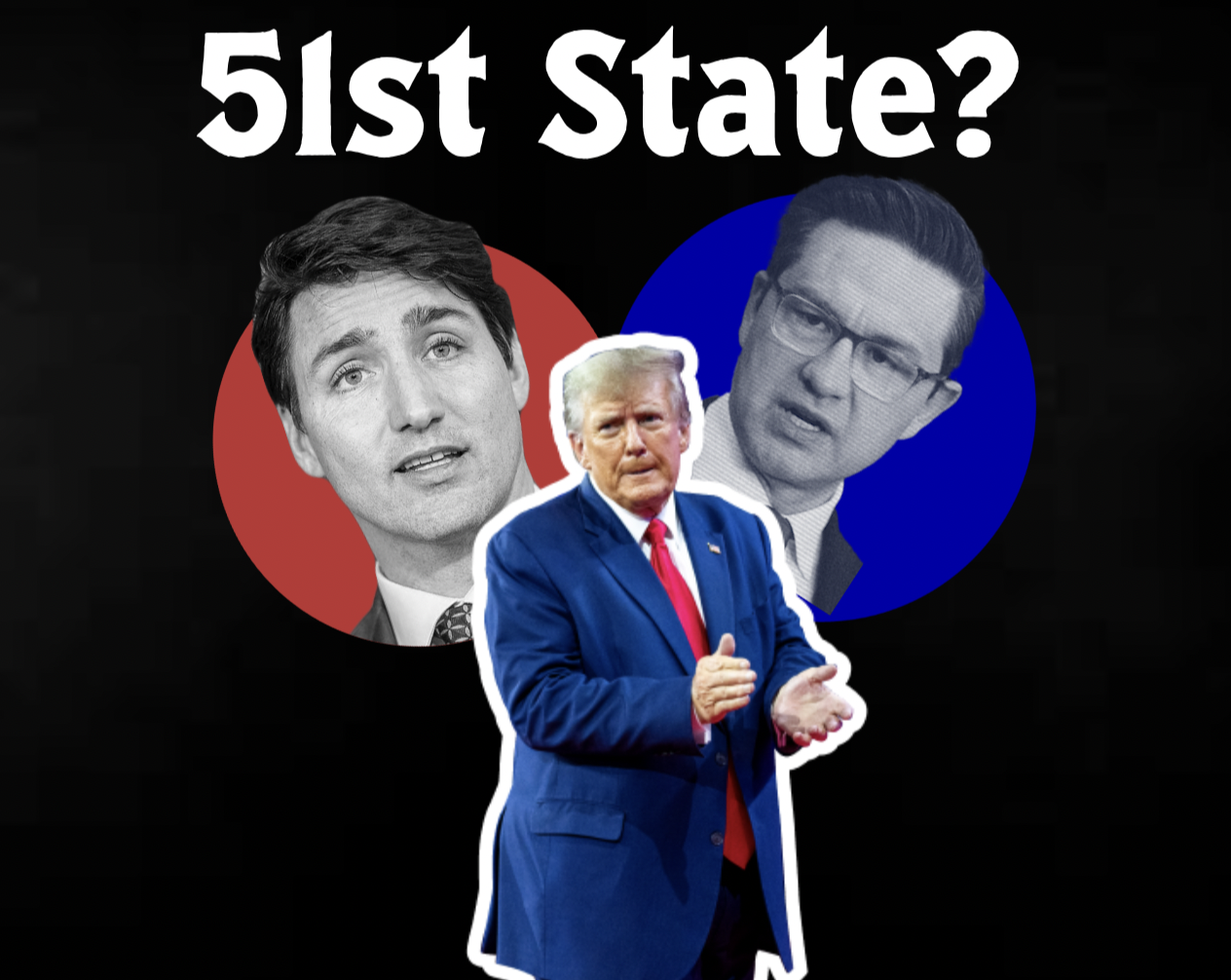Poilievre, Trump, and the Dark Reality of Canada as the "51st State"
The Real Danger Behind the Joke
On the surface, Trump’s suggestion that Canada might become the 51st state is absurd. Canada is a sovereign nation with a well-established political system, a distinct cultural identity, and a firm commitment to its independence. The idea of Canada merging with the U.S. is highly improbable and would require not only monumental political and legal changes but also a rejection of Canada’s national identity.
They resonate with his base because they echo a broader theme of American exceptionalism and a belief in U.S. dominance over its neighbours. In this context, Trump’s remarks about Canada aren’t just jokes—they’re an extension of the rhetoric that frames the U.S. as the natural leader of the Western Hemisphere, and by extension, suggests that other nations, including Canada, might eventually be subsumed under U.S. influence.
It’s this kind of rhetoric that has fuelled populist movements across the globe, often undermining diplomatic relationships and stoking fears of isolationism and unilateralism. While Canadians are unlikely to take the suggestion of becoming a U.S. state seriously, the tone of the comment should be seen as part of a larger trend of rising nationalism and authoritarianism.
No Laughing Matter for Canada
The implications of Trump’s remark take on a more serious tone when viewed alongside the rise of populist movements in Canada. Pierre Poilievre, leader of Canada’s Conservative Party, has increasingly aligned himself with Trump-style populism, using rhetoric that targets political elites and critiques what he calls the “woke” culture. While Poilievre has not suggested that Canada should merge with the U.S., his embrace of far-right, anti-establishment politics echoes the same populist playbook that Trump has perfected.
While Trump’s comment about Canada becoming the 51st state is clearly an attempt at humor, it reflects deeper, more troubling currents in U.S. and Canadian politics. The rise of populism, exemplified by both Trump and figures like Pierre Poilievre, signals a shift away from cooperation and shared values toward divisive, nationalist agendas. Canadians must recognize the dangers of this trend and remain vigilant in defending their sovereignty and democratic principles. Trump’s remarks may have been meant as a joke, but the political forces they represent are no laughing matter.
Under Poilievre’s leadership, the Conservative Party has capitalized on widespread dissatisfaction with the political elite, but the price for this populist appeal is steep. Just as Trump has polarized the U.S. electorate and weakened American democracy, Poilievre risks doing the same in Canada. His “us vs. them” narrative pits ordinary Canadians against a political establishment he portrays as out of touch with the people’s needs, creating fertile ground for further polarization. In a country known for its social cohesion and political stability, this type of divisive rhetoric is particularly dangerous.
Moreover, Poilievre's brand of nationalism taps into fears of cultural displacement, technological change, and economic inequality, all of which are real concerns for many Canadians. Yet rather than addressing these issues through inclusive, thoughtful policy, Poilievre's populism often relies on stoking anger and resentment. This not only fails to address the root causes of these problems but risks creating a more fragmented society, one where political discourse becomes less about common ground and more about clashing ideologies.



.jpg)

Comments
Post a Comment